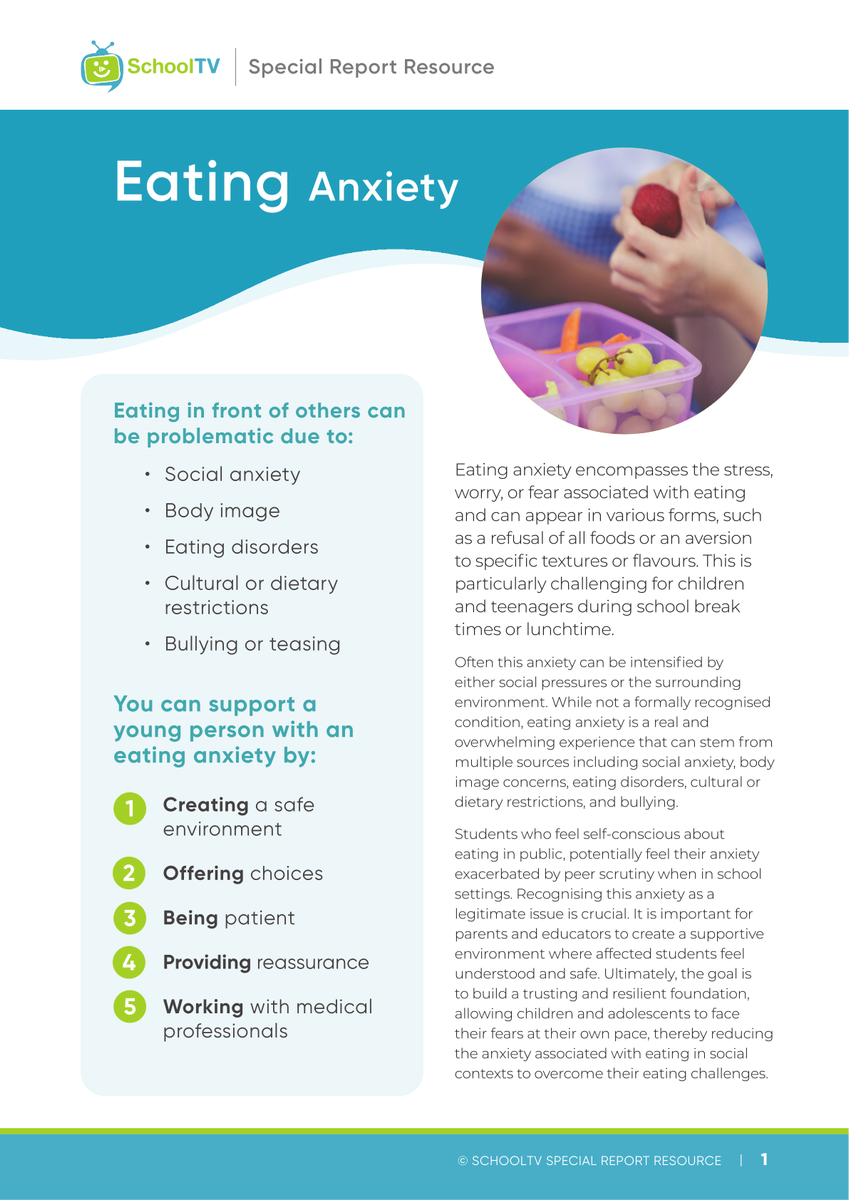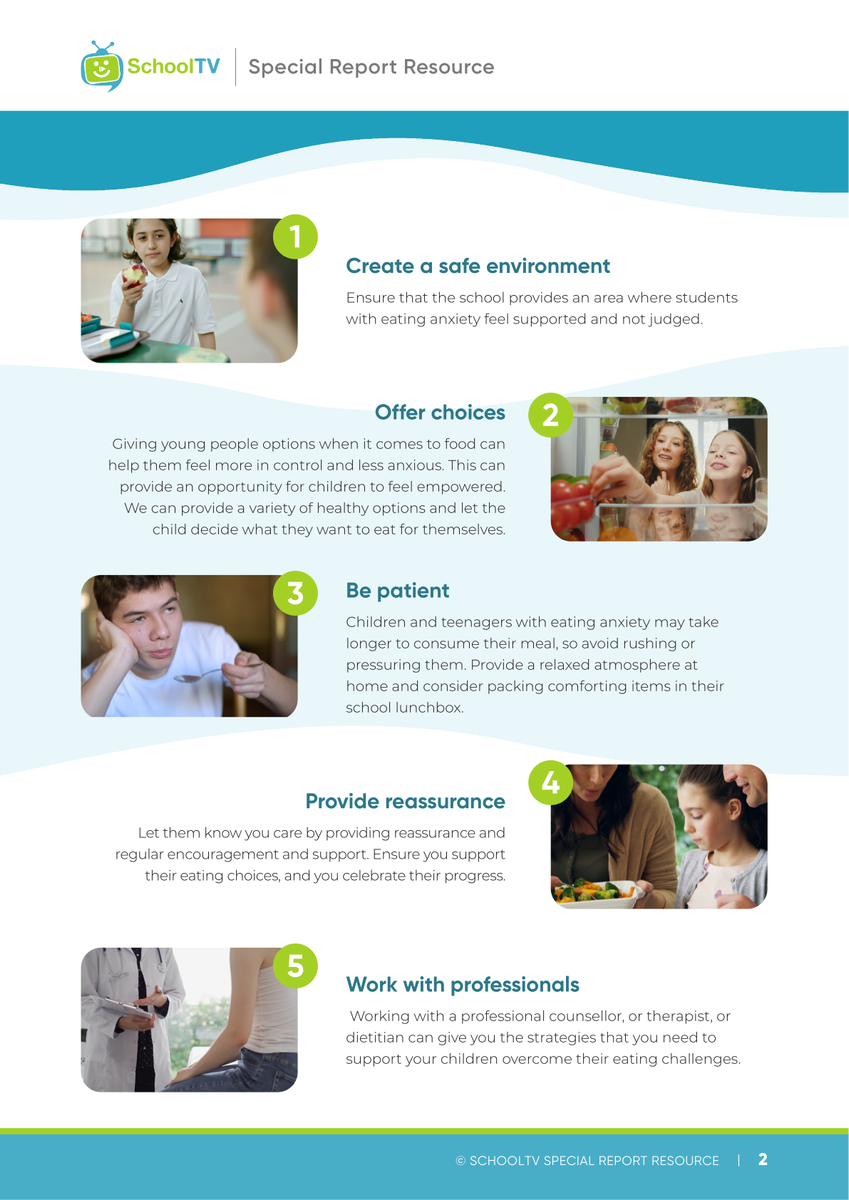SPECIAL REPORT: Eating Anxiety
MRS MANDY MCCALLUM - DIRECTOR OF WELLBEING

SPECIAL REPORT: Eating Anxiety
MRS MANDY MCCALLUM - DIRECTOR OF WELLBEING


Adolescence is a time of growth, change, and self-discovery. However, it can also be a period marked by increased pressures around body image, social comparison, and mental health. One of the most concerning trends in today’s school environment is eating anxiety, particularly the issue of students skipping meals such as breakfast or lunch, or avoiding eating during school hours altogether. While this behaviour may seem harmless at first, it can have serious implications for a young person's health, emotional wellbeing, and overall development.
The Dangers of Skipping Meals at School
For adolescents, skipping meals or avoiding food during the school day can have far-reaching consequences. Nutritional deficits from missed meals can impair concentration, mood, and energy levels, making it harder for students to engage in learning, socialise, or participate in physical activities. Students who skip meals may also experience irritability, fatigue, and difficulty managing stress or anxiety, all of which can negatively affect their academic performance and relationships with peers.
Eating anxiety can be a contributing factor to why some students avoid eating. This type of anxiety may stem from body image concerns, peer pressure, or an internalised fear of judgement about their appearance or food choices. Students may feel self-conscious eating in front of others, or may worry about being scrutinised for what or how much they eat. This anxiety can create a cycle where food becomes a source of stress, rather than nourishment.
How Parents and Caregivers Can Help
One of the most effective ways to support adolescents dealing with eating anxiety is by fostering open and supportive communication at home. Parents and caregivers can play a key role by checking in with their child about how they are feeling both emotionally and physically when it comes to food. These conversations can create a safe space for the child to share any worries or pressures they may be facing related to eating, body image, or social situations at school.
Here are some ways parents and caregivers can help:
The Importance of Wellbeing Support
If you notice your child constantly skipping meals, showing signs of distress around food, or exhibiting a decline in mood or performance, it may be time to reach out for professional support. Eating anxiety can affect a student’s mental and physical health, and it’s important to address it early on to prevent further challenges down the road.
In our school community, wellbeing support is available for students, and if you or your child need assistance, or would like guidance on how to approach conversations around eating anxiety, please don’t hesitate to contact our wellbeing team. We are here to provide resources, support, and counselling to help students feel empowered and confident in their relationship with food and their bodies.
For more information on eating anxiety and resources for families, visit SchoolTV Special Report on Eating Anxiety and Butterfly Foundation.





